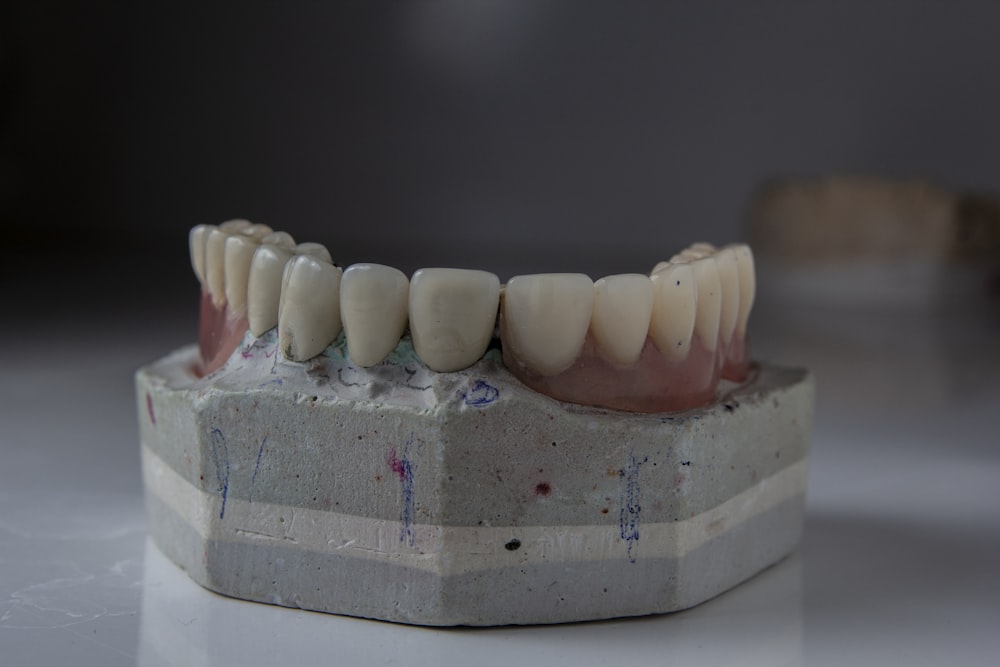Dental Implant Hartford OH - Dental Implants Ohio
When determining what sort of anesthesia is used for dental implants, it turns into essential to explore varied options available to patients. The choice of anesthesia can considerably impression the comfort of the procedure, the general experience, and the velocity of recovery.

Local anesthesia is probably the most generally used type for dental implant surgical procedures. In this methodology, an anesthetic agent is injected close to the surgical site. Local anesthesia effectively numbs the targeted area, allowing the oral surgeon or dentist to carry out the procedure with minimal pain to the affected person. It is beneficial because sufferers stay absolutely awake and conscious throughout the method, fostering a sense of control.
Sedation dentistry presents another approach for many who could feel anxious in regards to the procedure. Sedation can range from delicate to deep, permitting sufferers to loosen up while their implants are placed. Different ranges of sedation can be achieved via oral sedatives, nitrous oxide, or intravenous strategies. The degree of leisure could be tailor-made to the particular needs or nervousness ranges of the affected person.
Dental Implant Condit OH - Dental Hygienist near Ohio

Nitrous oxide, generally known as laughing gas, is a popular alternative for dental procedures, including implants. This type of sedation works quickly, permitting patients to really feel relaxed and euphoric. Administration is convenient, as the gas is inhaled via a masks placed over the nose. Patients can usually resume regular activities shortly after the process, making nitrous oxide a favourite amongst both dentists and sufferers.
Another option is oral sedation. This technique entails taking a prescribed sedative before the appointment. Patients usually really feel sleepy and fewer aware of their surroundings whereas still being able to talk with their dental staff if necessary. While oral sedation is effective, its onset and duration can differ from individual to individual, so dentists must consider particular person needs rigorously.
Intravenous (IV) sedation provides deeper ranges of sedation, perfect for longer or extra complex procedures. This methodology permits for rapid adjustment of sedation ranges, because the anesthetic is run immediately into the bloodstream. Patients on this state could really feel extremely relaxed and might not keep in mind the process afterward. IV sedation typically requires a more intensive recovery interval compared to native anesthesia alone.
Dental Implant Johnstown OH - General and Restorative Dentistry

General anesthesia, though usually reserved for more invasive surgeries, may also be considered for dental implants in specific situations. This sort of anesthesia induces a state of complete unconsciousness, requiring close monitoring by an anesthesiologist. General anesthesia is suitable for sufferers with severe nervousness, those who have issue sitting still for prolonged intervals, or when multiple procedures are carried out concurrently.
The choice of anesthesia might also depend upon the patient's medical historical past and any underlying health conditions. Some sicknesses may improve the chance of complications during anesthesia. Detailed discussions between the affected person and the dental team can lead to a personalized anesthetic plan that ensures safety while enhancing consolation.
Dental Implant Johnstown OH - Dental Hygienist near Ohio
Many patients specific concern regarding the side effects related to anesthesia. While side effects can range based mostly on the sort used, most native anesthetics present minimal risks. Common concerns embrace short-term numbness and swelling close to the injection web site. For those that go for sedation, unwanted facet effects could embody drowsiness, dizziness, or nausea.
Recovery time additionally plays a task in the choice of anesthesia. Local anesthesia usually permits for a faster recovery, enabling patients to renew regular actions within hours (Dental Implant Alexandria OH). Sedation methods may require more time for the medication to wear off, necessitating preparations for transportation post-procedure.
The significance of communication between the affected person and the dental practitioner can't be overstated. Sharing considerations and preferences permits for a tailored anesthetic approach. A thorough analysis helps to establish essentially the most applicable sort of anesthesia to ensure each comfort and effectiveness during the dental implant process.
Dental Implant Centerburg OH - Dental Care
In addition to comfort and security, the overall success of dental implants can be influenced by the choice of anesthesia. The effects of tension on the physique can complicate surgical procedures and lengthen recovery times. Therefore, a correct anesthetic plan performs an important role in not solely quick comfort but in addition the long-term success of the dental implants.
Patients should be ready to debate their medical history, nervousness levels, and private preferences when consulting a dentist for dental implants. This open dialogue allows the practitioner to create an anesthetic technique that suits the person whereas ensuring the process runs smoothly and successfully.
The quest for a pain-free dental implant process could be daunting for so much of. The varying forms of anesthesia create options that may fit particular person needs, life, and luxury levels. The right alternative of anesthesia can turn a doubtlessly stressful dental visit into a extra manageable experience.
Dental Implant Hartford OH - Emergency Dentist
In conclusion, understanding what type of anesthesia is used for dental implants is crucial for patients making ready for the procedure. From native to general anesthesia, each method has its advantages and concerns. With quite a lot of choices out there, patients can work intently with their dental group to determine the most effective approach, enhancing not solely consolation but also the likelihood of a successful consequence. Ultimately, the choice of anesthesia instantly impacts both the experience through the process and the general satisfaction with dental implants.
- Local anesthesia is predominantly used for dental implants, providing focused numbing to the surgical site while permitting the patient to stay totally acutely aware.
- Common native anesthetics include lidocaine, articaine, and mepivacaine, each chosen for his or her effectiveness and period of action.
- Sedation dentistry may be employed for patients with nervousness, often utilizing average sedation strategies like nitrous oxide or oral sedatives.
- General anesthesia could be an option for complex cases or in sufferers with severe nervousness or particular needs, ensuring a very unconscious state.
- The alternative of anesthesia is decided by the affected person's medical history, level of anxiety, and complexity of the implant process.
- During the procedure, monitoring of important signs ensures the affected person's safety and luxury levels are maintained.
- Post-surgery, sufferers are sometimes given instructions concerning pain management, which may include over-the-counter pain relievers alongside suggested dosages of native anesthesia.
- The use of anesthetic agents can vary based on individual responses, necessitating a tailor-made strategy from the dental professional.
- Some dental practices may provide virtual actuality or distraction techniques to assist sufferers manage nervousness alongside anesthesia options.undefinedWhat kind of anesthesia is used for dental implants?
What is the most typical type of anesthesia used for dental implants?undefinedThe most common kind of anesthesia for dental implants is native anesthesia, specifically lidocaine. This numbs the surgical space to minimize pain in the course go to this web-site of the process.
Dental Implant Centerburg OH - Dental Hygienist near Ohio

Can I request sedation for my dental implant surgery?undefinedYes, many dentists supply sedation choices, such as oral sedation or nitrous oxide, for sufferers who feel anxious or choose a more relaxed expertise throughout dental implant surgery.
Will I be awake in the course of the dental implant procedure?undefinedIf local anesthesia is used, you might be awake however numb within the treatment area. If sedation is chosen, you could be in a light-weight sleep and never totally aware of the process.
How long does the anesthesia final in the course of the procedure?undefinedThe effects of native anesthesia typically last for 1 to 3 hours, depending on the precise medicine used. However, the period can differ primarily based on particular person components.
Are there any unwanted effects of dental anesthesia?undefinedPossible unwanted aspect effects can embrace short-term numbness, swelling, straight from the source bruising, and, in uncommon circumstances, allergic reactions - Dental Implant Sunbury OH. It's necessary to debate any issues along with your dentist beforehand.
Dental Implant Hartford OH - General and Restorative Dentistry
Can I eat or drink after receiving anesthesia for my dental implant?undefinedIt's best to keep away from consuming or drinking till the numbness has utterly worn off to stop biting your tongue or cheek. Follow your dentist’s particular post-operative instructions for the best outcomes.
How is anesthesia administered for dental implants?undefinedLocal anesthesia is often administered by way of a small injection directly into the gum tissue. Sedation choices may contain inhalation or oral treatment that will assist you relax earlier than the procedure.
Dental Implant Centerburg OH - Get Your FREE Dental Implant Consultation NOW!
Do I want someone to drive me home after the procedure?undefinedIf you’ve acquired sedation, it’s recommended to have somebody drive you home, as you might feel groggy or disoriented. Local anesthesia alone normally does not require assistance.
What if I have a concern of needles?undefinedIf you've a concern of needles, talk about this along with your dentist. Dental Implant Hartford OH. They can provide methods to assist ease your anxiety, corresponding to using topical numbing brokers earlier than the injection.